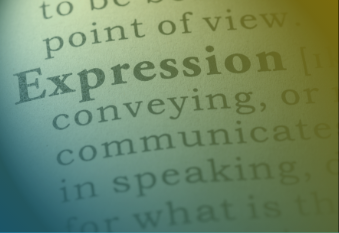Resource Materials
Dialogue Resources
Spirited debate, engaging conversation, and intellectual exploration are central features of the college campus experience. Students should be encouraged to learn with and from each other, respectfully challenging each other’s arguments and critically exploring a range of topics. But in today’s polarized political climate, conversation and dialogue across differences can often be difficult to navigate.
To help campuses and students facilitate these difficult conversations effectively, we’ve compiled the following resources:
Guides for Facilitating Effective Dialogue and Discussion:
- The Better Arguments Project key principles and resources guides
- Campus Compact and Sustained Dialogue Institute’s Dialogue and Deliberation Resources
- Harvard Kennedy School’s Summary Report & Recommendation of Constructive Conversations Working Group,
- Essential Partners guides for facilitating dialogue in general and on specific topics
- Everyday Democracy discussion guides for community change
- Institute for Democracy and Higher Education (IDHE) at the American Association of Colleges and Universities, “Facilitating Political Discussions: A Facilitator Training Workshop Guide”
- IDHE’s Free Speech and Inclusion on Campus: A Discussion Guide
- Constructive Dialogue Institute’s Structures for Dialogue
- Center for Civic Engagement’s Engaging in Civil Discourse Toolkit
- PEN America’s How Faculty Can Encourage Dialogue on Campus
- Interfaith America Bridgebuilder Basics Course
- Sustained Dialogue Institute Understanding Dialogue Resources and Articles
- UC Davis’ Dialogue Across Difference Workshop for Faculty featuring Center fellow Brian Soucek
- UC Berkeley Faculty Dialogue Series: Creating Inclusive Classrooms
- UC National Center for Free Speech and Civic Engagement (Center) fellows’ project by Lara Schwartz and Andrea Brenner: “Let Freedom (And Respect) Ring: Fostering Civil Discourse and Free Speech in the Classroom and Beyond
For Students:
- IDHE’s Campus Conflict and Conversation Help Desk
- Bipartisan Policy Center’s Campus Free Expression Project: Six Strategies for Conversing on Campus
- BridgeUSA is a national student-led, campus-based organization that seeks to engage young people in civic life by promoting constructive dialogue and a solution-oriented political culture.
- FIRE/First Amendment Watch “Talking Across Differences” module
- PEN America’s How Students Can Encourage Dialogue on Campus
- Constructive Dialogue Institute’s How students can practice talking about things that matter Webinar
- Interfaith America Talk Better Together Tool
- Citizens4Community Civility Tool Cards
Specific Programs in Higher Education:
The examples below highlight campus programs which teach and facilitate dialogue across differences.
- American University’s Project on Civil Discourse
- Claremont McKenna College CARE Center
- James Madison University Civic Center’s Facilitating Difficult Election Conversations Guide
- National Institute for Civil Discourse: Linking Civility Work on College Campuses
- UChicago Law School Dialogue Roundtables
- University of Colorado CU Dialogues Program
- University of Connecticut Democracy and Dialogues Initiative Encounters Series
- UC Davis’ Dynamic Discussion Hub
- UCLA’s Dialogue Across Difference Program
- UC Irvine Courage Conversations Series

